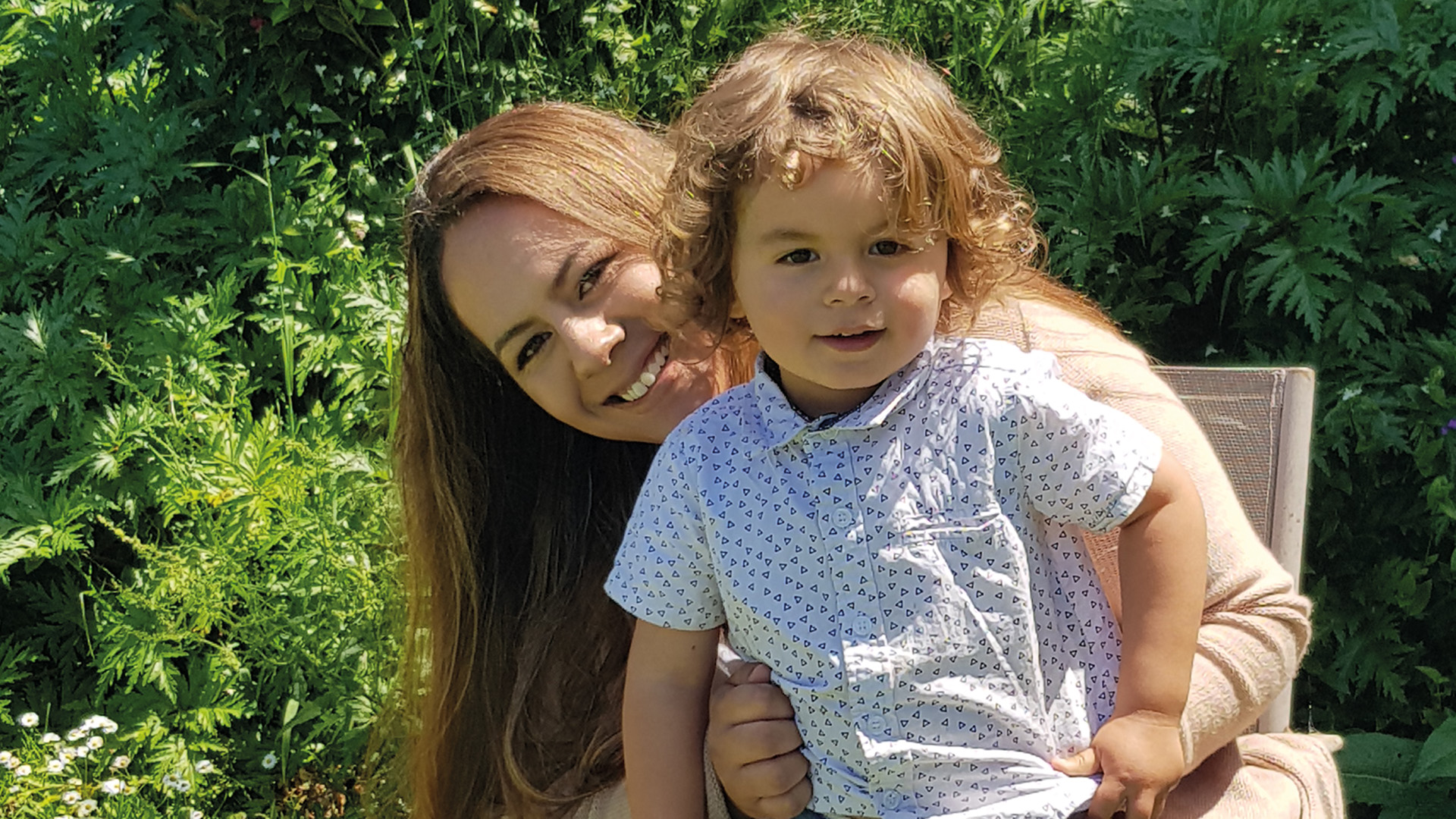In her last 10 weeks of pregnancy, while creating her birth plan with her midwife, Margy Stewart disclosed her whānau (family) history of haemophilia (a genetic disorder where the blood doesn’t clot normally). With the news, the birth plan was altered from a home birth to one at hospital with an emergency C-section if required, managed by doctors and surgeons.
“Chances were that I was a carrier, but I was incredibly hopeful and probably in denial of what may happen. I was adamant my baby would be OK,” Margy recalls.
Imagine bringing your new baby home, knowing that his blood won’t clot. Imagine the thought of playdates, preschool, walks, trampolines and swings with a child diagnosed with haemophilia. How would you create a home for this child to best meet his needs?
Margy, who lives in the North Island of New Zealand, gave birth to Lukas in May 2016 and her worst fears were confirmed two days later—Lukas was diagnosed with the severe form of haemophilia A. This meant he would grow up not only experiencing bleeding following any minor injury, but may also have frequent spontaneous bleeding episodes, often into his joints and muscles.
Trying to process this news rocked Margy’s hopes and dreams for her precious baby boy.

The impact of living with haemophilia
Haemophilia was not a new word in Margy’s vocabulary; she actually knew it too well. Margy has watched her older brother, who has haemophilia, go in and out of hospital and develop arthritis in all his joints.
“I watched my koro (grandfather) and two of my uncles go through it as well. I hated watching them go through life with this disorder, living in terrible pain and fear,” she says.
Another uncle struggled to access adequate treatment, had his legs removed, is in a wheelchair and battles drug addictions for his pain relief.
“Due to my life experience with the disease, fear and grief initially welled up inside me with the diagnosis.” But that didn’t stop Margy from looking for hope: “I also felt confident being able to work alongside the doctors as well as put safe limits around Lukas, allowing him to thrive.”
The first few months of a new mama’s life can be filled with various challenges, surprises and learnings, Margy’s was no different but she was especially blessed that Lukas slept through the night at five weeks old!
“However, Lukas’s first year of life was incredibly stressful. It’s hard when something is wrong with your newborn baby,” she says.
Margy found herself doing what most mums do: desperately wanting to be a perfect mum. She was highly strung, couldn’t relax or even dream of taking Lukas out of the house. When Lukas was a few months old, she was diagnosed with postnatal depression. Acknowledging that “this was going to be really difficult and I needed support to navigate this new reality”, Margy opened up to a close friend who connected her to a young mothers’ parenting course. Lukas thrived in this new environment and Margy grew as a person and mother.
Coping and living with haemophilia
Mothers find power in different things and identifying that power is key for growth. “I learned that my power was to speak about haemophilia and not blame myself. I learned that it is powerful to feel your grief and share with people who are prepared to listen.” Margy added coping strategies, chose being positive over fear and surrounded herself with people who believed Lukas could have a whole and meaningful life. Margy’s reality moved from one stifled in the “what ifs” to one focused on creating a life where Lukas could be anything he wanted.
Margy’s growing faith in a loving God also provided much peace and comfort through her journey. Friends who shared her faith provided support and encouragement in accepting that God has a plan and purpose for both her and Lukas’s life, giving her a firm foundation of peace.
“Although I did struggle early on, Lukas’s first 18 months were amazing. We managed to safeguard him enough not to have a bleed during this precious time. However, that changed at 18 months.”
The trips to the hospital began—every weekend it seemed: an ankle bleed, an eardrum rupture, mouth trauma bleeds, a head haemorrhage. At hospital, she found herself constantly fighting to get Lukas the timely treatment he needed. Lukas’s condition is such that delaying treatment after any trauma can be life-threatening and prevent a positive outcome, but not all practitioners felt the same urgency for treatment.
“I have an extensive knowledge of haemophilia and was prepared to bring it into play whenever it would help Lukas. However, it is so different when it is your child. I was now educator, advocate and mum,” she says.
Educating herself and others has grown Margy’s confidence. “Life will always be complicated with Lukas. I have learned that haemophilia is something you can live with and that treatment has come a long way since my koro, uncles and brother were diagnosed. My hope is that Lukas will live a fulfilled life with no boundaries!”
For now, Margy is Lukas’s mum and nurse, as she has gained qualifications to do his infusion at home. This skill has transformed their freedom and independence, adding a layer of power through knowledge and education.
Courageously dreaming of her boy living a fulfilled life, Margy says, “I am a confident person, however, being the mother of a boy with haemophilia has rocked that. I will provide Lukas the best foundation and personal education I can so he can care for himself in the future.”
Margy understands there will be much more education needed in the future: “I am Lukas’s advocate and will need to educate teachers and friends throughout his life, especially until he finds his voice and awareness.”
Building a strong support network and creating a safe home for Lukas to grow and play is essential for both his and Margy’s wellbeing.
“It is such a blessing that my in-laws do things for us without asking, they help without asking, they are just there for us without asking. They’re genuine people and they love Lukas,” she says. “I am grateful for the growing knowledge and awareness they have to help Lukas live a good life. They have the kindest hearts and have helped raise our son. The best help is when we need a break. They help us with Lukas as well as provide advice and support through different milestones.”
Through the journey, Margy also learned to accept her own vulnerability. “It doesn’t matter if you’re the strongest person in the world, you can still ask for help. We all need help at times!” she says. “It is OK to cry, to feel down, to be upset, but you can’t stay down. Let yourself blossom. Surround yourself with people who love you and your children. It’s not an easy job, so be proud of yourself, be grateful for all things that go well and if you feel like the health professionals aren’t listening to you, put your foot down—you know more than they do. You are your child’s voice!”
Although all she hoped for as a new mum shifted with Lukas’s diagnosis, Margy is passionate about sharing what she has learned with others: “Don’t let haemophilia or any disability your child has rule your life. Don’t let the situation hold you back from anything. You just have a little bit more on your plate and how you live with it is where you find refuge and happiness. We all live in a busy world, we all have to face battles and the Lord has plans for us.”
If you or someone you know needs help, contact:
Lifeline: 13 11 14 Australia | 0800 54 33 54 New Zealand
How helpful was this article?
Click on a star to rate it!
0 / 5. 0
Be the first to rate this post!
Jewel Douglas
Related posts
Subscribe
Receive personalised articles from experts and wellness inspiration weekly!

